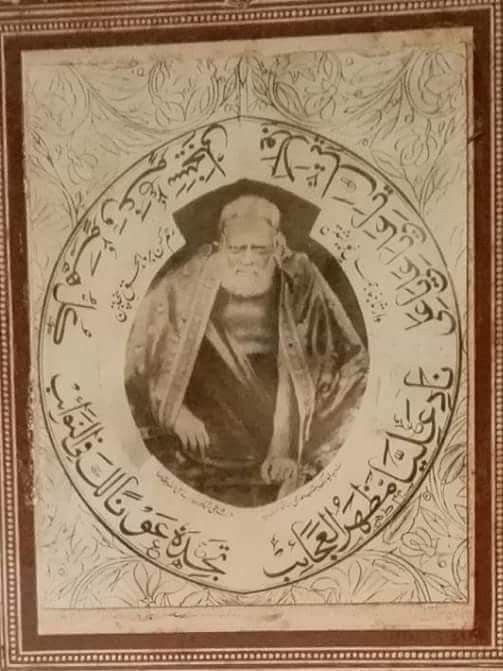Birth and Early Life :
Haji Waris Ali Shah was born in 1817 (1234 Hijri) in Dewa Sharif, a town in the Barabanki district of Uttar
Pradesh, India. He belonged to a well-respected family of Sufi mystics.
His father,
Qurban Ali Shah, passed away when Waris Ali Shah was just a child, leaving him to be
raised by his grandmother. From an early age, he displayed signs of deep spirituality and was known for his
piety and inclination towards religious study and meditation.
His family traced their lineage back to the
Prophet Muhammad, which added to the spiritual reverence
people had for him in later years.
Spiritual Journey and Teachings :
Haji Waris Ali Shah became a disciple of his maternal uncle, Khadim Ali Shah, who initiated him into
the Sufi path. He engaged in intense meditation and ascetic practices, spending many years in contemplation
and spiritual exercises.
His Sufi order is known as the
"Warisiyya" a branch of the Qadiri-Razavi order, which emphasizes a
deep connection with God, the importance of love for all of humanity, and the inner purification of the
soul.
Haji Waris Ali Shah's teachings revolved around universal love, compassion, and unity among people of all
religions and backgrounds. He taught that all humans, regardless of their caste, creed, or religion, are the
creation of one God and should be treated with love and respect.
He was known to preach tolerance and stressed the idea that spirituality transcends formal religious
boundaries. His message attracted followers from various communities, including Muslims, Hindus, Sikhs, and
others, who were drawn to his simplicity and spiritual wisdom.
Pilgrimages and Travels :
Haji Waris Ali Shah performed the Hajj pilgrimage to Mecca several times, starting at a young age,
which earned him the title "Haji" (pilgrim). It is said that he undertook the pilgrimage barefoot, a
testament to his humility and devotion.
During his lifetime, he traveled extensively, spreading his message of love and unity. His journeys took him
across India and beyond, including visits to places like Afghanistan, Iraq, and the Arabian Peninsula.
Wherever he traveled, people were drawn to him due to his profound spiritual presence and his ability to
connect with others. His followers, known as murids, would often accompany him, helping spread his teachings
far and wide.



